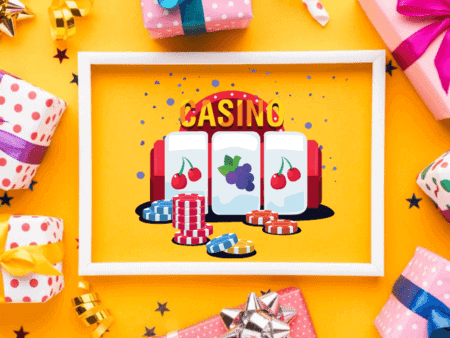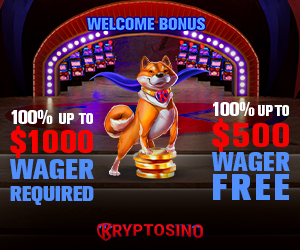Casino rewards programs have become increasingly popular in recent years, with almost every casino offering a loyalty program to attract and retain customers. These programs offer a range of rewards, from free play and hotel stays to VIP experiences and exclusive events. But have you ever wondered why these programs effectively keep customers coming back? The answer lies in psychology.
We will explore the psychological principles behind casino rewards programs, specifically the impact of loyalty points and tier levels on customer behavior. We will delve into the three major styles of reinforcement schedules used in these programs: fixed ratio, variable ratio, and variable interval. We will also examine the role of gamification in casino rewards programs and how it can be employed to push customer engagement and commitment.
Furthermore, we will discuss the impact of tier levels on customer behavior and how they can influence customers’ perception of their status within the casino.
Rewards programs drive customer loyalty.
Rewards programs are an essential component of casino loyalty programs. These programs are created to incentivize players to resume playing and award them for their dedication. Studies have shown that rewards programs drive customer loyalty. Casinos can encourage repeat visits by offering players rewards and incentives and creating a sense of belonging among their patrons. In addition to providing players with tangible rewards such as free play or hotel stays, casino rewards programs also provide players with intangible benefits such as feeling valued and appreciated. As a result, players are more likely to continue playing at a casino that offers a strong rewards program. Casinos investing in their rewards programs will likely see increased customer loyalty, which can lead to increased revenue and profitability.

Tier levels create a hierarchy.
In the world of Casino Rewards Programs, tier levels create a hierarchy that can significantly impact player behavior. By offering multiple tiers of rewards, casinos can incentivize players to expend more periods and cash at their establishments to move up the ranks. The psychological impact of tier levels can be significant, as players experience a sense of achievement and progress as they move from one level to the next. Higher tier levels often come with more exclusive rewards and benefits, motivating players to strive for the top tier. Using tier levels in casino rewards programs is a strong means of growing player engagement and loyalty.
Loyalty points induce positive emotions.
One of the key components of Casino Rewards Programs is using loyalty points to incentivize players to continue playing and spending money. Research has shown that loyalty points induce positive emotions in players, particularly when redeemed for rewards or perks. This positive emotion may be linked to a sense of achievement or accomplishment, as players feel they have earned something through their continued loyalty to the casino. Additionally, earning points and working towards a reward can be seen as a form of gamification, making the process more engaging and enjoyable for players. Overall, using loyalty points in Casino Rewards Programs can significantly impact player psychology, leading to increased player engagement and retention.
Gamblers value personalized rewards.
One of the key findings in the psychology of casino rewards programs is that gamblers value personalized rewards. While loyalty points and tier levels are important elements of casino rewards programs, they are not enough to engage and retain customers in the long term. On the other hand, personalized rewards have been shown to increase customer satisfaction and loyalty. By tailoring rewards to individual customers’ specific preferences and behaviors, casinos can make them feel valued and special. This can lead to increased spending, visits, positive word-of-mouth, and referrals. Therefore, it is crucial for casinos to collect and analyze data on their customer’s preferences and behaviors and to use this information to create customized rewards that meet their needs and expectations.
Rewards programs influence behavior patterns.
Rewards programs have proven to be a powerful tool in influencing behavior patterns and driving customer loyalty. This is particularly true in casino rewards programs, where players can earn loyalty points and tier levels based on their gambling activity. The psychology behind casino rewards programs lies in “variable rewards,” where players are motivated to continue playing in anticipation of earning more points and reaching higher tiers. The promise of rewards creates a sense of excitement and anticipation, which can keep players returning for more. Additionally, the social recognition that comes with advancing in tier levels can create a feeling of status and exclusivity, further incentivizing players to remain loyal to the casino. Overall, the impact of casino rewards programs on player behavior and loyalty is significant, and understanding the psychology behind these programs is crucial for casinos looking to attract and retain customers.
In conclusion, casino rewards programs have a significant impact on player behavior. The psychology behind designing and implementing loyalty points and tier levels can influence players to continue playing, even when the chances are not in their popularity. Casinos are responsible for ensuring that their rewards programs are designed ethically and transparently, with the ultimate goal of providing a positive gaming experience for their customers. Understanding the psychology behind these programs can allow players to make educated conclusions regarding their gambling habits and encourage industry professionals to create responsible and sustainable rewards programs. By prioritizing player well-being and responsible gambling practices, the casino industry can continue to thrive while providing safe and enjoyable entertainment for all.
| Key Aspect | Description |
|---|---|
| Rewards programs drive loyalty | They incentivize players to continue playing, provide tangible and intangible benefits, and increase revenue. |
| Tier levels create a hierarchy | They induce a sense of achievement, offer exclusive rewards, and grow player engagement and loyalty. |
| Loyalty points induce emotions | They create positive emotions, a sense of achievement, and gamification, impacting player psychology. |
| Gamblers value personalized rewards | Tailoring rewards to individual preferences increases satisfaction, loyalty, spending, and referrals. |
| Rewards programs influence behavior | They use variable rewards to create excitement and anticipation, influence behavior patterns, and retain loyalty. |
FAQ
The three major styles of reinforcement schedules used in casino rewards programs are fixed ratio, variable ratio, and variable interval.
Tier levels create a hierarchy and significantly impact player behavior by offering multiple levels of rewards. They induce a sense of achievement and progress, with higher tiers offering more exclusive rewards, motivating players to strive for the top level.
Loyalty points induce positive emotions in players, especially when redeemed for rewards or perks. They create a sense of achievement and can be seen as a form of gamification, increasing player engagement and retention.
Personalized rewards increase customer satisfaction and loyalty by making players feel valued and special. Tailoring rewards to individual preferences and behaviors leads to increased spending, visits, positive word-of-mouth, and referrals.

Eddi Cole
Table of Contents
















